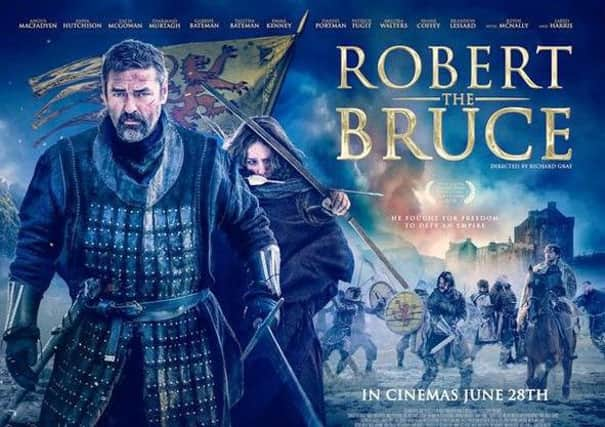Angus Macfadyen and Lewis Capaldi know how to brew up a PR storm – Brian Ferguson


For all those who have been living in a cave over the last week, the film’s star Angus Macfadyen, best known for playing the same character in Braveheart, had spent years working on a follow-up and finally got it made, mainly in the US, after the production was deemed not Scottish enough for funding support here.
After a somewhat lukewarm reaction and low-key premiere at the Edinburgh International Film Festival, Macfadyen decided to take Cineworld to task after apparently discovering that they had ruled out showing the film on its opening weekend. Predictable battle lines were drawn on social media with SNP politicians and hard-core Scottish Nationalists in one camp falling in behind Macfadyen.
Advertisement
Hide AdAdvertisement
Hide AdVirtually everyone else stood watching on from the sidelines, with either popcorn in hand, or hiding behind their hands, at Macfadyen’s no-holds-barred crusade against Cineworld, during which he regularly invoked the spirit of Robert the Bruce and echoes of Bannockburn.
Macfadyen may be a relatively forgotten figure in the Scottish cultural scene, but he quickly had Oscar-winner Tim Robbins fighting his corner, along with former First Minister Alex Salmond. Such was the interest generated by Macfadyen, which was substantially more than for any other movie in the final few days of the film festival, that Cineworld inevitably bowed to public pressure, including a 5,000-strong online petition, and agreed to show the film.
For a low-budget movie which had hardly registered in Scotland before it was announced in the film festival line-up back in May, it was a remarkable turnaround and its box office takings will be substantially more than they would have been without the Cineworld stooshie.
One of the most intriguing elements about the affair was the debate over Macfadyen’s use of Twitter, which on the one hand was helpfully whipping up hysteria among Scottish Nationalists, but also producing a largely po-faced response from an army of critics who had not, and are highly unlikely to, actually seen the film. It would appear that Macfadyen had single-handedly generated a firestorm of publicity at the expense of Cineworld, although the chain will probably be better off now that the threat of boycotts from fans unable to see the film in its cinemas suddenly abated.
Macfadyen appears to have little in common with Scotland’s new musical sensation, Lewis Capaldi, but they have certainly managed to hog more than their fair share of the headlines.
Capaldi, whose ingenious use of social media has played a huge part in building interest in his music, appeared to generate more publicity than any other act at Glastonbury over the weekend with the escalation of his “feud” with Noel Gallagher – by striding out on stage in a parka to a backdrop of the Oasis star asking “Who’s this Capaldi fella?” before unveiling a t-shirt expressing his lovel for Noel.
It remains to be seen whether Macfadyen and Capaldi have inadvertently rewritten the rulles of arts marketing and PR with their exploits. But they are certainly a lot better known than before this silly season got underway.